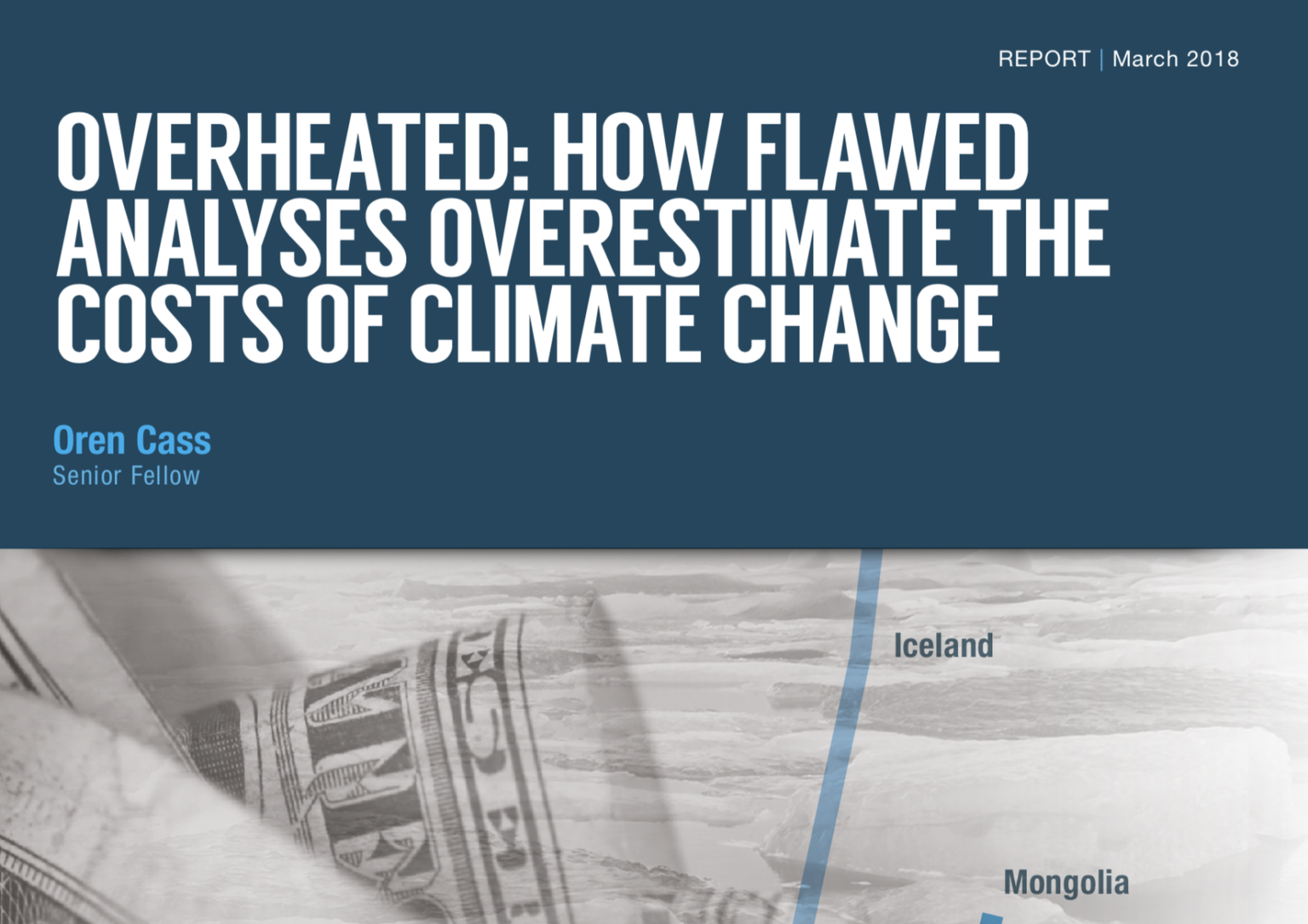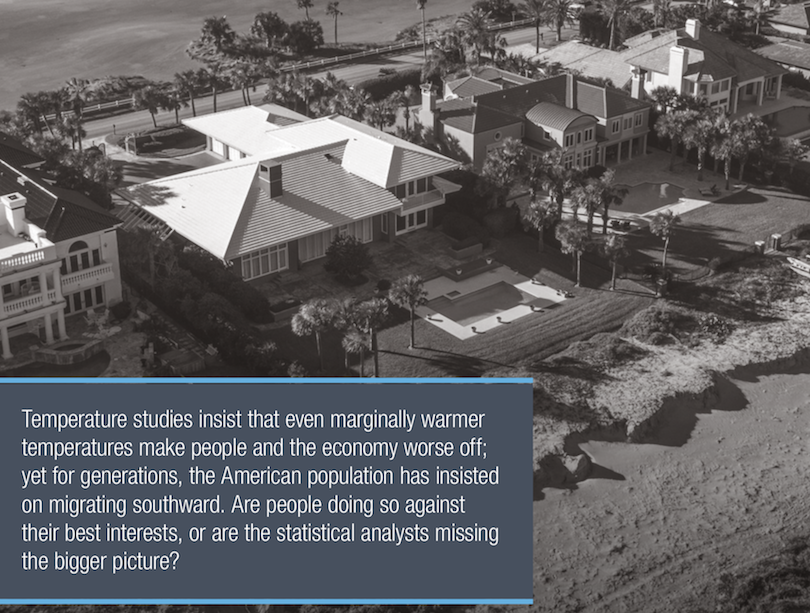A new report by Oren Cass of the Manhattan Institute for Policy Research dismisses predictions of the impacts of a warming world with a simple solution: When climate change turns up the heat, people just need to turn on their air conditioners.
From his analysis, “Overheated: How Flawed Analyses Overestimate the Costs of Climate Change,” the Wall Street Journal somehow arrived at the following headline for Cass’s recent op-ed: Doomsday Climate Scenarios Are a Joke.
It should be noted that Cass is a Harvard-trained lawyer, with a background in political science, not climate science. And his employer, the Manhattan Institute, for years has promoted climate science contrarianism while pushing fossil fuel development. No surprise that the organization is bankrolled by several conservative foundations, including the billionaire Mercer family, major Trump donors and funders of climate denial.
Cass’s Wall Street Journal op-ed, which begins with “Debates over climate change are filled with dire estimates of its cost,” was quickly trumpeted by the also Mercer-backed right-wing publication Breitbart News.
What Cass is peddling with his “just get air conditioners” argument is known as adaptation. The purveyors of this approach admit the climate is changing but say that it is nothing to worry about because humans will just adapt. This argument is much more popular with the extremely wealthy than with the rest of the world’s population.
Cass proceeds to dismiss several reports from organizations such as the U.S. Environmental Protection Agency and U.S. Government Accountability Office that estimate the impacts of increasing temperatures on the U.S. and global economy by simply saying people will do things like turn on air conditioners. Thus, he concludes, those estimates of the costs which he admits include “deaths from extreme heat, lost hours of work from extreme heat, and deaths from heat-caused air pollution” are “mostly from laughably bad economics.”
Now, air conditioning might be a feasible solution for office workers and the affluent, but what about people who work outside, such as agricultural workers? Cass acknowledges this problem is real, but he has a solution for that as well: “This does not rule out possible technological innovation in the future (such as cooling vests).”
Can’t afford a mythical cooling vest on, for example, a migrant worker’s salary? At the very end of the analysis, Cass touches on this as well: “Just because adaptation is desirable and likely to occur does not make it free.”
No explanation from Cass as to where the funding for all of this adaption would come from.
It’s unlikely the Mercers will foot the bill, but their dollars likely will be sufficient to keep the air conditioners running at the Manhattan Institute’s offices.
The ‘People Live in Florida’ Argument
Like his peers at the climate-denying Competitive Enterprise Institute, Cass also trots out the example of people currently living in Florida as his evidence that humans prefer warmer climates and have no problem adapting to heat.
Cass’s report only focuses on increases in temperatures and while he briefly mentions the usefulness of studying impacts of sea level rise, he doesn’t account for this or any of the other risks of climate change in his analysis. That makes including an image of a beach in Jacksonville, Florida, an interesting choice in the part of his report arguing that Floridians are excellent at adapting.
Last month the Florida Times-Union published a story on the dangers which Jacksonville is facing due to sea level rise. Mike Buresh, chief meteorologist with the area’s Fox News affiliate, explained the reality of climate change and sea level rise there.
“Just a few years ago, we were doing stories on Vilano Beach, and the homes that are now gone,” he explained. “We were questioning: Could they last another 15, 20, 25 years? Well, they didn’t last five.”
The story also featured Courtney Hackney, a retired professor at the University of Northern Florida where he was director of the coastal biology program.
Hackney admits that he had heard early warnings about the dangers of sea level rise, but the warnings had come from those he referred to as “radicals.”
The radicals were dismissed back then, he says. Now Hackney admits that not only were the radicals right but that their estimates were too conservative.
“That’s frightening,” Hackney is quoted as saying.
Perhaps Cass should have a conversation with the people of Vilano Beach about the value of adaptation?
Main image: Cover of Oren Cass’s report “Overheated: How Flawed Analyses Overestimate the Costs of Climate Change.”
Subscribe to our newsletter
Stay up to date with DeSmog news and alerts








